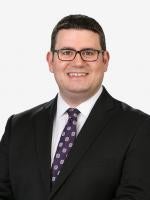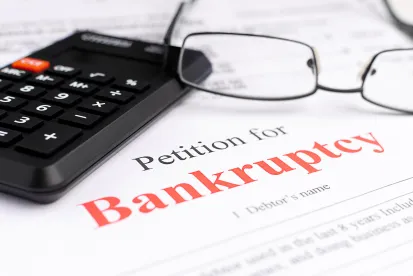On November 10, 2022, the US Court of Appeals for the Second Circuit directed the US Bankruptcy Court for the District of Connecticut to order a refund of fees paid by a chapter 11 debtor to the Office of the US Trustee (UST).[1]
The Second Circuit’s ruling in In re Clinton Nurseries, Inc. is significant for parties who were involved in chapter 11 bankruptcy cases between January 1, 2018, and March 31, 2021, and particularly those in the Second Circuit (New York, Connecticut, and Vermont). The remedy for unconstitutional UST fee overcharges was undecided by the US Supreme Court’s Siegel v. Fitzgerald decision, which held that the UST’s fee structure violated the uniformity requirements of the US Constitution. The Second Circuit’s decision provides guidance to current and former debtors, plan administrators, and liquidating trustees to potentially seek refunds of unconstitutional overpayments made to the UST system.
Background
The UST’s budget is replenished by the US of Trustee System Fund, which consists primarily of administrative fees paid by debtors. The formula debtors must use when calculating these fees is found in 28 USC § 1930(a)(6). This statute provides a sliding scale of fees that are based on the debtor’s quarterly disbursements; this formula periodically changes to reflect the UST’s budget needs. For instance, between January 1, 2008, and December 31, 2017, a debtor making quarterly disbursements aggregating more than $30 million would be subject to a UST fee of $30,000, the maximum fee charged during this time period. However, due to funding shortfalls, Congress revised the formula in 2017 to raise the maximum fee to $250,000, which applied to quarterly disbursements aggregating more than $25 million (the Formula). The Formula went into effect on January 1, 2018, and remained in effect until March 31, 2021.
The UST does not, however, operate in North Carolina or Alabama. Rather, a Bankruptcy Administrator serves as the government watchdog in the federal judicial districts within North Carolina and Alabama and performs duties analogous to the UST. The Bankruptcy Administrator is funded, in part, by the collection of fees based on debtors’ quarterly disbursements. The Bankruptcy Administrator’s formula was not required to match the UST’s formula. As a result, debtors with bankruptcy cases pending in different states may pay different fees despite making similar quarterly disbursements. The disparity between fees charged by the UST and the Bankruptcy Administrator led to a raft of litigation that ultimately reached the Supreme Court in Siegel v. Fitzgerald, 142 S. Ct. 770 (2022).
In Siegel, the Supreme Court held that the Formula violated the uniformity requirement of the Bankruptcy Clause of the US Constitution because, in part, the Formula was an “arbitrary geographically disparate treatment of debtors.” However, the Supreme Court did not articulate a remedy and instead remanded that issue to the lower courts for further consideration.
The Second Circuit’s Remedy Ruling
Prior to Supreme Court’s ruling in Siegel, the Second Circuit had similarly held that the Formula was unconstitutional in In re Clinton Nurseries, awarding the debtors a refund of approximately $375,000 in UST fees that would not have been due in a bankruptcy case filed in the federal judicial districts located in Alabama and North Carolina. This ruling was stayed while the Supreme Court considered Siegel, delaying payment of the refund.
On November 10, 2022, the Second Circuit reaffirmed and reinstated its prior refund order in light of Siegel granting Clinton Nurseries its refund. Although the Court’s ruling is limited to the parties, in this case, the Second Circuit’s decision establishes important precedence that should be considered by debtors, liquidating trustees, and plan administrators of Chapter 11 cases that were pending during the period of January 1, 2018, through March 31, 2021.[2] This is particularly true for cases within the Second Circuit but may (and likely will) be relied upon by other courts.
FOOTNOTES
[1] In re Clinton Nurseries, Inc., 998 F.3d 56 (2d Cir. 2021), cert. granted, judgment vacated sub nom. Harrington v. Clinton Nurseries, Inc., No. 21-1123, 2022 WL 6571659 (US Oct. 11, 2022), and reinstated by No. 20-1209 (2d. Cir. Nov. 10, 2022).
[2] Following Siegel, the Tenth Circuit also reinstated its similar decision in John Q. Hammons Fall 2006 LLC v. US Trustee (In re John Q. Hammons Fall 2006 LLC), 15 F.4th 1011 (10th Cir. Oct. 5, 2021).




 />i
/>i

